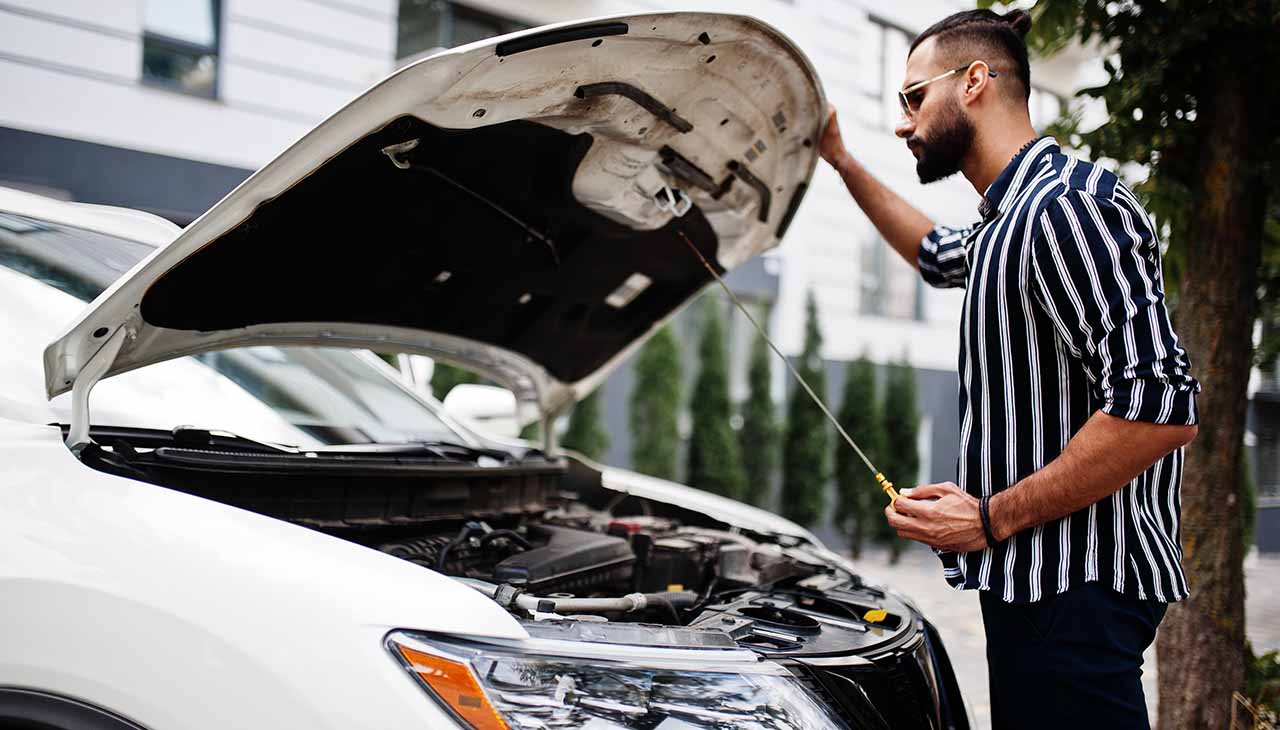Why Regular Car Maintenance Matters
Owning a car involves more than just driving. Regular car maintenance is crucial to keep your vehicle running smoothly, ensuring safety, reliability, and longevity. Whether you’re a new driver or a seasoned auto enthusiast, understanding basic car maintenance can save you time, money, and stress. This guide will cover essential checks and tasks, helping you maintain your ride with confidence.
Basic Car Maintenance Checklist for New Drivers and Owners
Oil Changes and Fluid Checks
Changing your car’s oil is one of the most important maintenance tasks. Oil lubricates the engine, reducing friction and preventing damage. Over time, oil degrades and becomes less effective.
- When to Change Oil: Check your owner’s manual for the recommended interval, typically every 3,000 to 5,000 miles.
- Checking Oil Level: Use the dipstick to check oil levels regularly. Low oil can lead to severe engine damage.
- Other Fluids: Don’t forget to check other fluids like coolant, brake fluid, and transmission fluid. These are vital for your car’s performance.
Tire Maintenance and Rotation
Tires are your car’s only contact with the road. Proper tire maintenance ensures safety and improves fuel efficiency.
- Tire Pressure: Check tire pressure monthly. Underinflated tires can lead to poor handling and decreased fuel efficiency.
- Tread Depth: Inspect tire tread for wear. Worn-out tires reduce traction, especially in wet conditions.
- Rotation and Alignment: Rotate tires every 6,000 to 8,000 miles to ensure even wear. Check alignment if you notice uneven tire wear or your car pulls to one side.
Battery Care and Inspection
A dead battery can leave you stranded. Regular battery care can prevent unexpected issues.
- Battery Terminals: Clean battery terminals to prevent corrosion, which can affect performance.
- Voltage Check: Use a multimeter to check the battery voltage. A healthy battery should read around 12.6 volts.
- Replacement: Most car batteries last 3 to 5 years. Replace yours if it’s showing signs of aging, like slow cranking.
Brake Maintenance
Brakes are critical for safety. Regular inspection and maintenance ensure they function properly.
- Brake Pads and Rotors: Check brake pads for wear and replace them if they’re thin. Inspect rotors for grooves or warping.
- Brake Fluid: Brake fluid is essential for hydraulic braking systems. Check levels and top up if necessary.
- Brake Performance: Pay attention to any changes in braking performance, like squeaking or a spongy pedal feel.
Understanding Your Vehicle’s Warning Lights and What They Mean
Modern cars come equipped with various warning lights on the dashboard. Understanding these lights can help you address issues promptly.
- Check Engine Light: Indicates a problem with the engine or emissions system. Get it checked by a professional.
- Oil Pressure Light: Signals low oil pressure. Stop driving immediately and check oil levels.
- Battery Light: Indicates a problem with the charging system. Check the battery and alternator.
How to Perform Simple Car Maintenance Tasks at Home
Step-by-Step Guides with Visual Aids
Performing basic car maintenance at home can save you money and give you a sense of accomplishment. Here are a few tasks you can do yourself:
- Oil Change: Drain the old oil, replace the oil filter, and refill with fresh oil. Refer to your owner’s manual for specifics.
- Tire Rotation: Jack up your car and swap the front and rear tires. Ensure proper torque when tightening lug nuts.
- Air Filter Replacement: Locate the air filter housing, remove the old filter, and insert a new one. This task usually takes just a few minutes.
Tools Required for Basic Maintenance
Having the right tools makes car maintenance easier and more efficient. Here are some essentials:
- Socket Set: A comprehensive socket set is crucial for various tasks, from changing oil to tightening bolts.
- Jack and Jack Stands: Ensure safety when lifting your car for tire rotation or brake inspection.
- Multimeter: Useful for checking battery voltage and electrical diagnostics.
The Benefits of Regular Car Maintenance
Safety and Reliability
Regular maintenance ensures your car is safe to drive. Well-maintained brakes, tires, and lights reduce the risk of accidents and breakdowns.
Cost Savings in the Long Run
Preventive maintenance can save you money. Addressing small issues before they become major problems avoids costly repairs down the road.
Environmental Impact
A well-maintained car is more fuel-efficient, reducing your carbon footprint. Regular maintenance also ensures your car meets emission standards.
Conclusion and Encouragement for Ongoing Vehicle Care
Taking care of your car doesn’t have to be daunting. By following this guide, you can keep your vehicle running smoothly and enjoy the benefits of regular maintenance. Remember, a little effort goes a long way in ensuring your car’s safety, reliability, and longevity.
Stay proactive with your car’s maintenance, and don’t hesitate to seek professional help for more complex tasks. For more tips and professional services, visit our website or book a consultation with our expert mechanics.
Happy driving!

